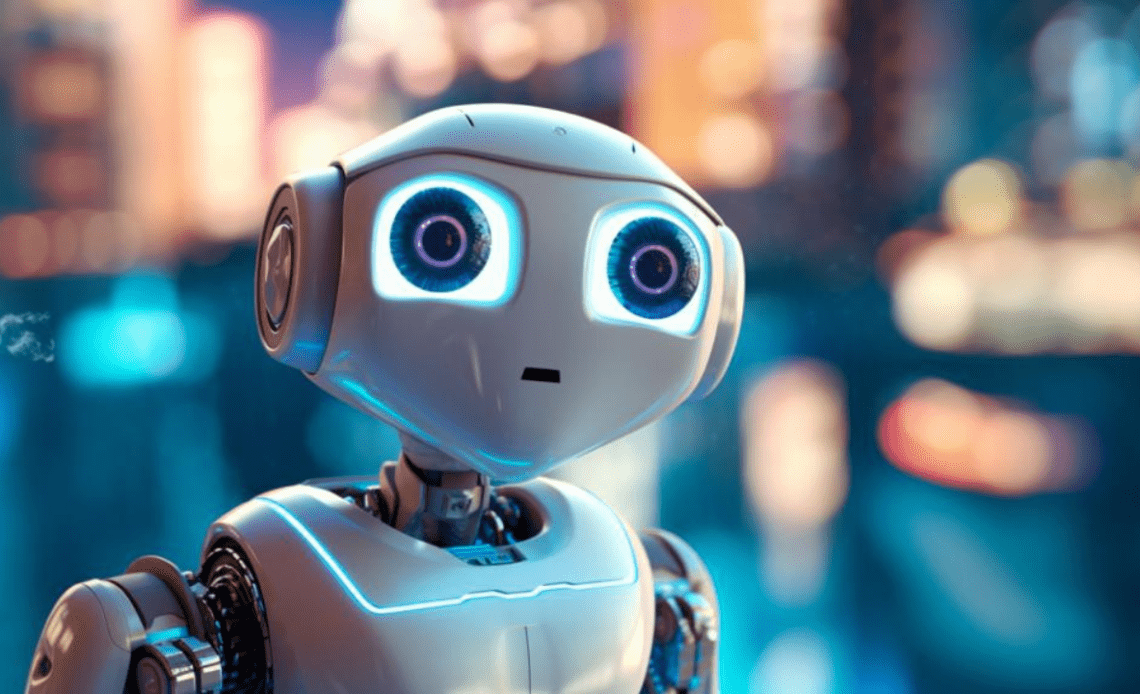Photo was created by Webthat using MidJourney
Khanmigo – Simulated Tutors Transforming Classroom Experience
Khan Lab School, a renowned institution in Palo Alto, California, has taken a bold step by introducing Khanmigo, an experimental chatbot tutor powered by artificial intelligence (AI). This innovative tool aims to revolutionize personalized learning, providing students with interactive guidance and support in subjects like math, history, and more.
As the first schoolchildren in the United States to test these conversational chatbots, Khan Lab School students are at the forefront of a potential educational paradigm shift.
The Potential Impact and Drawbacks of Automated Tutoring
Automated tutoring systems, exemplified by Khanmigo, hold immense promise in improving academic outcomes and reshaping the way students learn. These AI-powered tools have the potential to assist self-directed learners, allowing them to hone their skills, delve deeper into their interests, and explore new subjects at their own pace.
However, concerns have emerged regarding potential errors in the tutoring algorithms, the possibility of fostering cheating, the potential marginalization of teachers, and the impact on critical thinking skills.
The introduction of these chatbots raises ethical questions and positions students as test subjects in an evolving experiment in education through algorithms.
Democratizing Personalized Tutoring and Enhancing Teacher Support
Sal Khan, the founder of Khan Academy, envisions the democratization of personalized tutoring through tools like Khanmigo. By leveraging AI, Khan Academy seeks to provide every student in the United States, and eventually worldwide, with access to a world-class personal tutor.
Beyond supporting students directly, these tutoring bots can assist teachers in tasks such as lesson planning, freeing up valuable time for personalized interactions and fostering deeper connections with their students. The potential benefits extend to both students and educators, promising a more equitable and effective education system.
The Uncharted Territory of AI-Assisted Tutoring
The introduction of simulated tutors like Khanmigo represents an exciting frontier in education. However, the ability of these chatbots to provide empathetic support and genuine encouragement akin to human tutors remains uncertain.
While proponents argue that AI can eventually match or even surpass human tutoring capabilities, skeptics question whether the emotional connection and nuanced understanding of human tutors can be replicated by algorithms alone.
History shows that previous attempts at automated teaching devices often fell short, highlighting the challenges and complexities involved in integrating technology into the classroom effectively.
Khanmigo’s Development and Limitations
Khan Academy’s team developed Khanmigo by harnessing the power of GPT-4, a sophisticated language model created by OpenAI, the renowned research lab behind ChatGPT. The goal was not merely to provide students with answers but to guide them through their learning process.
Khanmigo employs the Socratic method, encouraging students to explain their thinking and find solutions independently. While the chatbot displays impressive language proficiency, it is not without limitations.
Developers at Khan Academy implemented safeguards to mitigate inaccuracies, but the system occasionally makes mistakes, reminding students with a disclaimer at the bottom of the screen. This transparency promotes critical thinking and emphasizes the importance of validating information.
Challenges and Future Potential in Implementing Tutor Bots
Khan Lab School’s pioneering adoption of tutoring bots provides valuable insights into the benefits and challenges associated with their implementation. While the Silicon Valley-based school offers an ideal environment for testing and refining these innovative tools, it is essential to consider their efficacy in different educational settings.
The effectiveness and engagement of chatbot tutors in larger classrooms or diverse student populations remain open questions that require further exploration.
Ongoing learning, careful evaluation, and responsible implementation are key to unlocking the full potential of tutor bots and ensuring they complement, rather than replace, human interaction and expertise in education.
CLICK HERE TO READ MORE ON WEBTHAT NEWS


